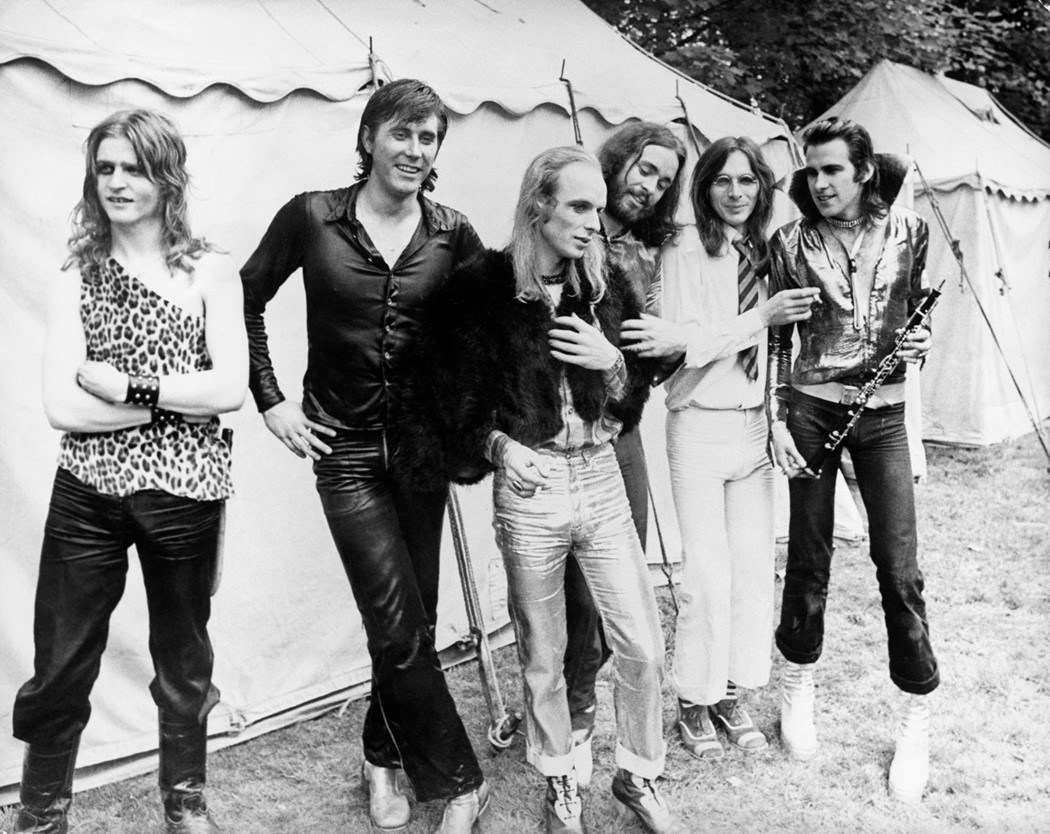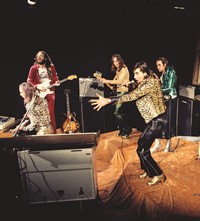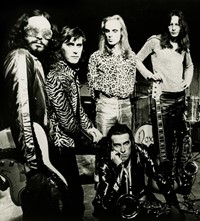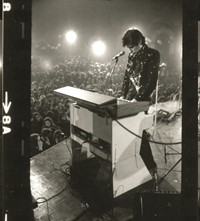The Song that Shot Roxy Music to Stardom
- TextRichard Williams
1972 marked a turning point for Roxy Music, which transformed from a newly-assembled band to an era-defining act. In an exclusive excerpt from a new book about the group, Richard Williams charts this metamorphosis
In 1972, Roxy Music released a self-titled album that would change the course of pop culture forever. 45 years on, the band are re-releasing this album and, with it, a stream of previously unreleased demos, outtakes, radio sessions, rare footage and a 136-page book. To celebrate, we’re devoting the next 24 hours to Roxy Music, presenting a series of articles curated in collaboration with the band.
They supported the fast-rising David Bowie and the Spiders from Mars at a packed Greyhound in Croydon on June 25 and Alice Cooper at Wembley’s Empire Pool on June 30, and shared the bill with Edgar Winter, Arlo Guthrie, Osibisa and Stone the Crows at the open-air Garden Party at Crystal Palace Bowl on July 29. On August 19 and 20 there would be two nights at the Rainbow in Finsbury Park, again supporting Bowie, who had made it clear that he was a fan of the group. Roxy Music duly entered the album charts at the end of July, discreetly at first but gradually ascending through the top 30, nudging Rod Stewart’s Never a Dull Moment, T. Rex’s The Slider, Alice Cooper’s School’s Out, Bowie’s Ziggy Stardust and Don McLean’s American Pie.
Not everyone was convinced. Around the music business there was a belief that this shiny new band was a hype, mysteriously powered by vast financial backing and lacking the kind of rock and roll integrity that supposedly characterised those who worked their way up through the system in the conventional way. The vast investment was a myth – many new bands had been more lavishly funded – but the smear stuck and their first television appearance, performing Ladytron on The Old Grey Whistle Test four days after the album’s release, was introduced by the ineffable Bob Harris with disobliging comments about their authenticity.
That itself could be taken as a sign of a promising start. What was needed next, EG and Island agreed, was a hit single. Ferry turned out to have been working on just the thing: a song called Virginia Plain, whose lyric began in high post-modern style with a very arch description of how the band breached the walls of the establishment – “Make me a deal and make it straight / All signed and sealed, I’ll take it / To Robert E. Lee I’ll show it / I hope and pray he don’t blow it” – and drew its title from a triple-layered set of references: a girl of that name, a brand of cigarettes, and a geographical feature (a rejected mix ended with a triple echo of the title).
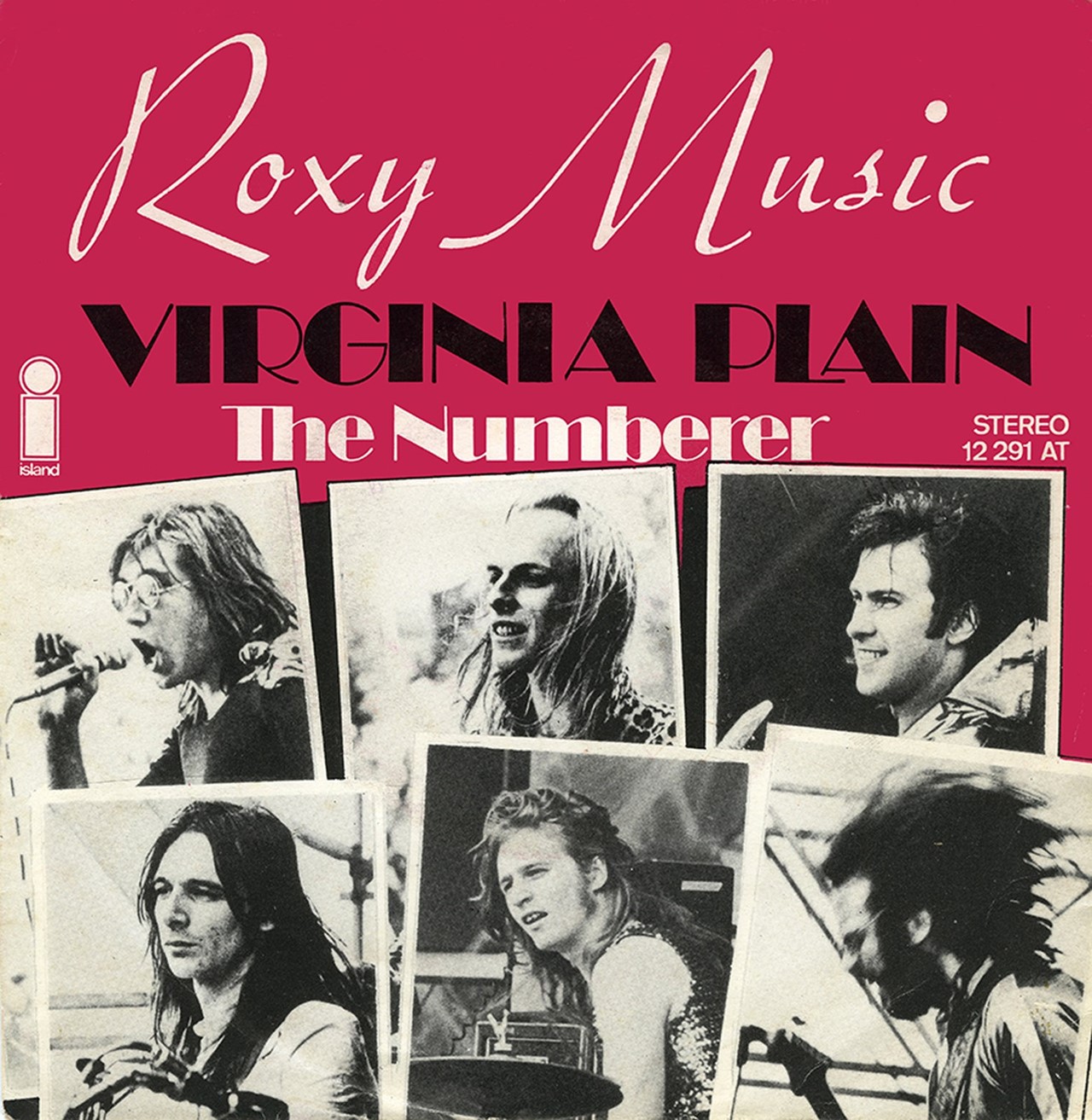
Back they went into Command for three days, starting on July 10, once again with Sinfield and Hendriksen. The presence of Kenton was the only change from the album sessions as the band tackled Ferry’s brand-new song. The leap in confidence all round was unmistakable as Virginia Plain leapt fully-formed out of the speakers – first in the studio during the mixing sessions on July 17 and 18 and then, following its release on August 4, in every adolescent bedroom where a transistor was tuned to Radio One. “It encapsulated all the ‘Roxy things’ in one little ditty,” Manzanera says. “It sounded great instantly.”
Commercial success did not altogether silence their critics. Assessing Virginia Plain in the Melody Maker of August 12, the paper’s singles reviewer, the whimsical Chris Welch, a prominent admirer of ELP, Yes and Led Zeppelin, expressed the prevailing scepticism: “One’s eyes are assailed by glitter and one’s ears by somewhat shallow, contrived music. It all seems a rather long-winded way of knocking out a couple of riffs...”
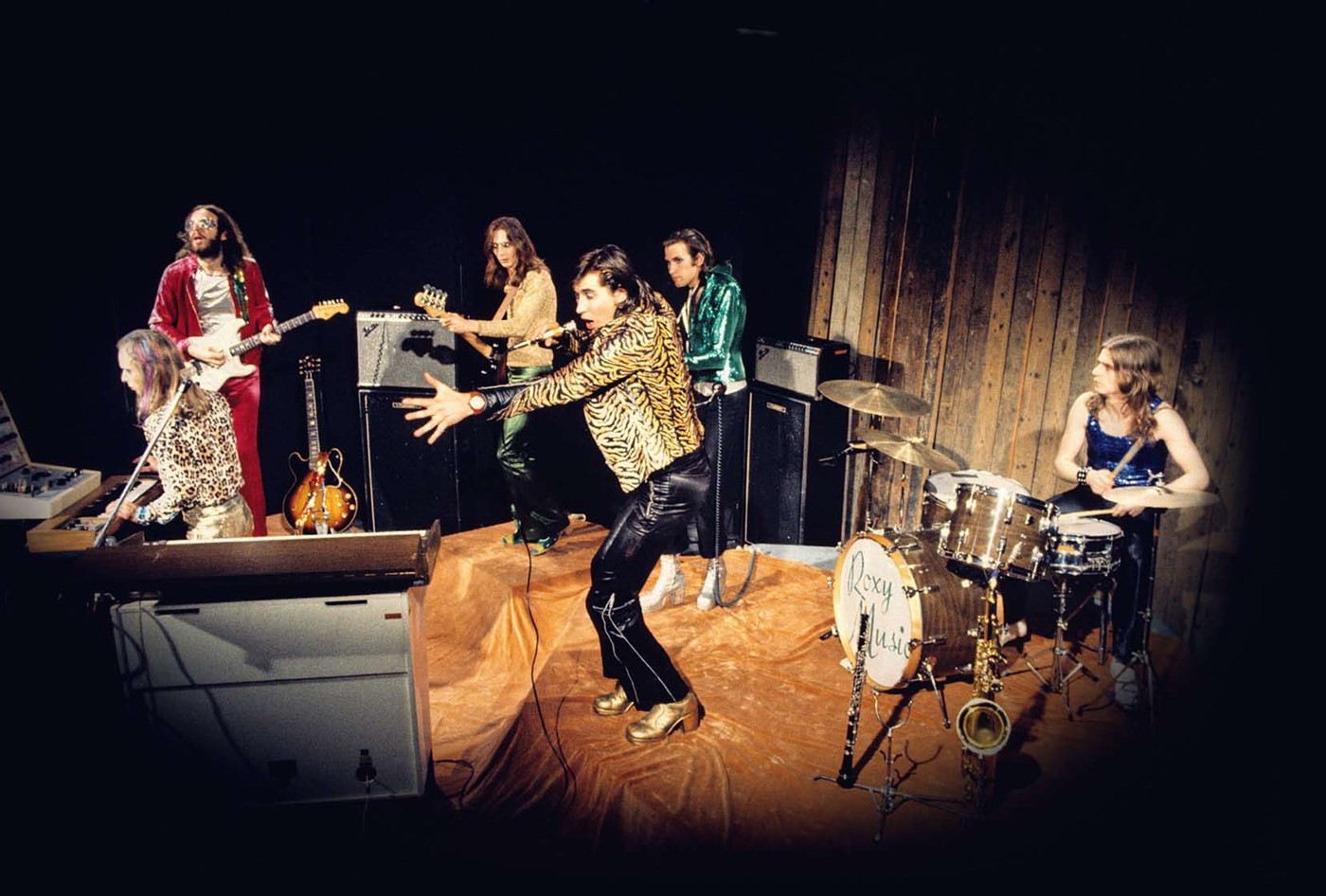
The single entered the Top 50 on August 15 and made sufficient progress to justify an invitation to appear on Top of the Pops on August 24. “That opened all the doors,” Manzanera says. “I remember Eno being really pissed off that all you could see was his gloved hands. He was really cheesed off, although he’d never admit it.” For Mackay, TOTP was “such a horrible programme – although if you were on it, you knew you’d made it on some level or other. I think the people on the programme thought we were fairly strange. It was faintly unnerving, that strong BBC atmosphere of having to go through lots of uniformed commissionaires, and knowing that your dressing room was smaller than someone else’s, and not being allowed into the bar afterwards.”
The impetus would take them all the way into the top five, giving renewed momentum to the album, which made the top 10 by the end of September. Suddenly they had become a presence in the nation’s living rooms, presenting their extraordinary arts-lab experiment to a mass audience. Listening to the early recordings, Manzanera says, still evokes that time, for him as well as for others: “A lot of people say to me, ‘The first time I saw you on Top of the Pops, I realised there’s hope for a person like me’ – in Sheffield or Scunthorpe or wherever.”
For Simon Puxley and Graham Simpson, who died in 1999 and 2012 respectively, Roxy Music stands as a permanent marker of their vital contribution to the story of a band who helped to change the course of popular culture in the 1970s, and for whom the traditionalists’ scorn could be worn as a badge of honour.
“We never really felt accepted,” Ferry reflects. “I can see how the old guard would have felt threatened by it, because it was so jammed full of ideas and a massive amount of energy. But we hadn’t paid our dues, not in the same way. And we’re still not a part of it, not really, even to this day. That’s been very hard over the years, to try and make it work without being one of them, whether it was the Eagles or Take That or nowadays The X Factor. The ‘them’ is always different, but we’re not part of it. It’s been one of the triumphs, that we’ve managed to stay sane. Or sane-ish. We’re a part of it all, somehow, but still on the outside.” On the outside: the place where chances could be taken, where new worlds awaited discovery, where the individual and collective imaginations could be released. And where lives could be remade and remodelled, via one image and one disc – eventually gold, just like the picture.
Richard Williams writes for the Guardian and for his own music blog, The Blue Moment. His books include volumes on Miles Davis, Bob Dylan and Phil Spector.
Roxy Music: The Debut Album 45th Anniversary Four Disc Super Delux Box Set will be released by UMC on February 2nd, 2018. Pre-order a copy here.
